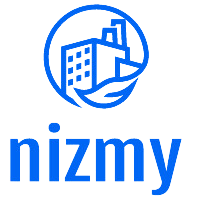The rise of digital transactions and interactions has made identity management a critical aspect for individuals and organizations alike. With the increasing number of data breaches and privacy concerns, traditional identity management systems have proven to be inadequate in ensuring security and trust. In response, blockchain technology has emerged as a potential solution, with Hyperledger Indy being at the forefront of revolutionizing secure identity management.
What is Hyperledger Indy?
Hyperledger Indy is an open-source, permissioned blockchain platform developed by the Linux Foundation. It was created specifically for decentralized identity management, addressing the limitations of current centralized systems. The platform allows individuals and organizations to create and manage self-sovereign identities that are secure, private, and portable.
How does Hyperledger Indy work?

Hyperledger Indy uses a combination of various digital technologies to enable secure and trusted identity management. This includes the use of distributed ledger technology (DLT), cryptography, and zero-knowledge proofs.
Distributed Ledger Technology (DLT)
Hyperledger Indy utilizes a distributed ledger, which is a decentralized, tamper-proof database that stores information in an encrypted and immutable format. This ensures that all identity-related data is stored securely and cannot be altered or manipulated.
Cryptography
Cryptography is a key element in Hyperledger Indy’s identity management system. It involves the use of complex algorithms to encrypt and decrypt data, ensuring that only authorized parties can access and verify identities.
Zero-knowledge Proofs
Zero-knowledge proofs allow for the verification of information without revealing the actual data. This ensures that sensitive information, such as personal identification documents, is not disclosed during identity verification processes.
How to Use Hyperledger Indy for Secure Identity Management?

Hyperledger Indy offers a comprehensive set of tools and protocols for creating and managing self-sovereign identities. Here is a step-by-step guide on how to utilize the platform for secure identity management.
Step 1: Set up a Hyperledger Indy Node
The first step in using Hyperledger Indy is to set up a node. This can be done by following the documentation provided by the project. A node acts as a participant in the network, storing and verifying data on the distributed ledger.
Step 2: Create an Identity Wallet
An identity wallet is a digital container that stores all of an individual’s self-sovereign identities. It is created and managed by the user, granting them complete control over their personal information. To create an identity wallet, one must download a compatible wallet application, such as ‘Sovrin’ or ‘IdWallet’.
Step 3: Generate and Store Credentials
Credentials are pieces of information that make up an identity, such as name, address, or date of birth. Using the identity wallet, users can generate and store these credentials, ensuring they have access to them whenever needed.
Step 4: Share Credentials with Trusted Parties
Hyperledger Indy allows individuals to share their credentials with trusted parties, such as government agencies or financial institutions. This is done using zero-knowledge proofs, ensuring that only relevant information is disclosed, protecting the user’s privacy.
Examples of Secure Identity Management with Hyperledger Indy
Hyperledger Indy is being used in various industries and applications to enhance secure identity management. Here are some examples of how the platform is being utilized:
- In the healthcare industry, Hyperledger Indy enables patients to securely store and control access to their medical records, reducing the risk of unauthorized access and medical fraud.
- In the banking sector, Hyperledger Indy allows for secure and efficient Know Your Customer (KYC) processes, enabling financial institutions to verify customer identities without compromising sensitive information.
- Governments around the world are exploring the use of Hyperledger Indy for secure and transparent voting systems, ensuring accurate and tamper-proof election results.
Comparing Hyperledger Indy with Traditional Identity Management Systems
Traditional identity management systems rely on centralized databases, where all user data is stored and managed by a single entity. This centralized approach has several limitations, such as:
- Vulnerability to cyber attacks and data breaches
- Lack of transparency and control over personal information
- Inefficiency in identity verification processes
In contrast, Hyperledger Indy offers a decentralized system that addresses these limitations. By utilizing blockchain technology, it ensures secure and tamper-proof storage of data, gives individuals control over their identities, and enables efficient and privacy-preserving identity verification processes.
Tips and Best Practices for Secure Identity Management with Hyperledger Indy
To fully utilize the potential of Hyperledger Indy for secure identity management, here are some tips and best practices to keep in mind:
- Stay up-to-date with the latest developments and updates in the project.
- Carefully manage and store your identity wallet’s private keys to ensure the security of your identities.
- Always verify the authenticity of any requests for credential sharing before disclosing any information.
- Choose reputable and trusted nodes to avoid potential security risks.
Frequently Asked Questions about Hyperledger Indy
Q: What is self-sovereign identity?
A: Self-sovereign identity refers to the concept of individuals being in complete control of their personal information and identities, without reliance on central authorities or intermediaries.
Q: Is Hyperledger Indy a public or private blockchain?
A: Hyperledger Indy is a permissioned blockchain, meaning that access and participation in the network are restricted to approved users.
Q: Can Hyperledger Indy be used for authentication purposes?
A: Yes, Hyperledger Indy allows for secure and efficient authentication processes through the use of zero-knowledge proofs.
Q: Does Hyperledger Indy support interoperability with other blockchains?
A: Yes, Hyperledger Indy is designed to be interoperable with other blockchain platforms, allowing for seamless integration and data sharing.
Q: Is Hyperledger Indy suitable for small businesses?
A: Yes, Hyperledger Indy can be used by organizations of all sizes and in various industries to enhance secure identity management processes.
Conclusion
Hyperledger Indy offers a game-changing solution to the challenges and limitations of traditional identity management systems. By utilizing blockchain technology and advanced cryptographic techniques, it enables individuals and organizations to take control of their identities, ensuring security, privacy, and efficiency in identity verification processes. As the platform continues to evolve and gain adoption, it has the potential to revolutionize the way we manage and protect our identities in a digital world.

